Hard won, and can be lost in an instant; Is trust the Aussie agrifood sector’s most precious commodity?
Water. Soil. Nutrients. Climate. All critical components of a successful farming enterprise. But is there any component more fundamental than trust; that fragile commodity which we take for granted when we’ve got it – but find impossible to ignore when it’s lost.
But what exactly is trust, and how can agrifood producers not only build trust – but protect it?
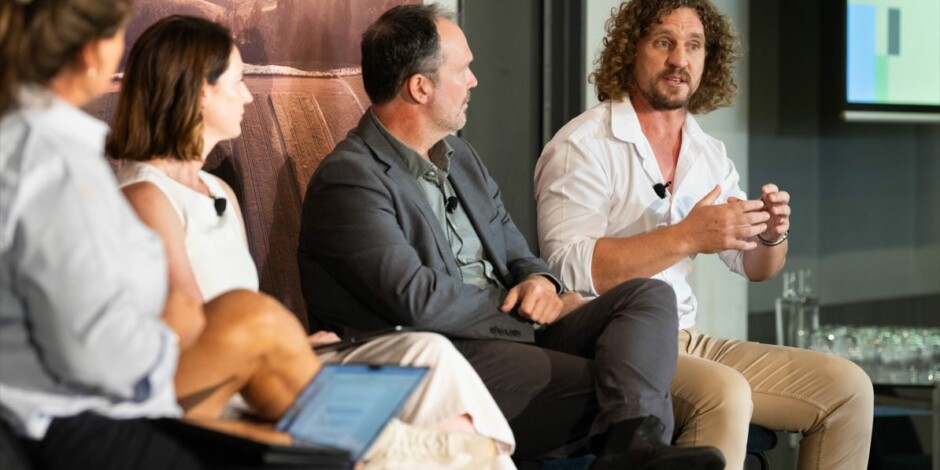
Trade has been an engine of growth for humanity since the Stone Age, when early humans exchanged food, clothing, and stones in a simple barter system. And while our modern agrifood trade is incomparably sophisticated, one thing remains the same: it’s still underpinned by trust.
In this Q&A, leading academics, producers, supply chain partners, and retailers simplify a notoriously complex issue – with advice that’s relevant to everyone who trades agrifood products.
Dr Kieren Moffat, CEO and co-founder, VoconiQ Engagement Science Insights; Lauren Mackenzie, Lead Sustainable Sourcing Manager Forests, Land and Agriculture, Coles Group; Gaethan Cutri, Owner and Director, Cutri Fruit; and Dr Michael Patching, Managing Director, Alta Food and Agriculture, share their thoughts.
What is trust?
– Dr Kieren Moffat, VoconiQ
Trust is being vulnerable with another person, and knowing they aren’t going to take advantage of that vulnerability. If you think about that in the context of relationships between an industry and community, managing environmental impact or animal welfare is really about managing vulnerability in the relationship – so community members can trust that an industry is effectively managing an issue that is relevant and important to them. It helps engender the community to an industry and provide it with freedom to operate.
– Lauren Mackenzie, Coles
Everybody in our food chain is ultimately supplying food and fibre to meet the needs of a customer. And ‘trust’ to customers means delivering what it says on the packet.
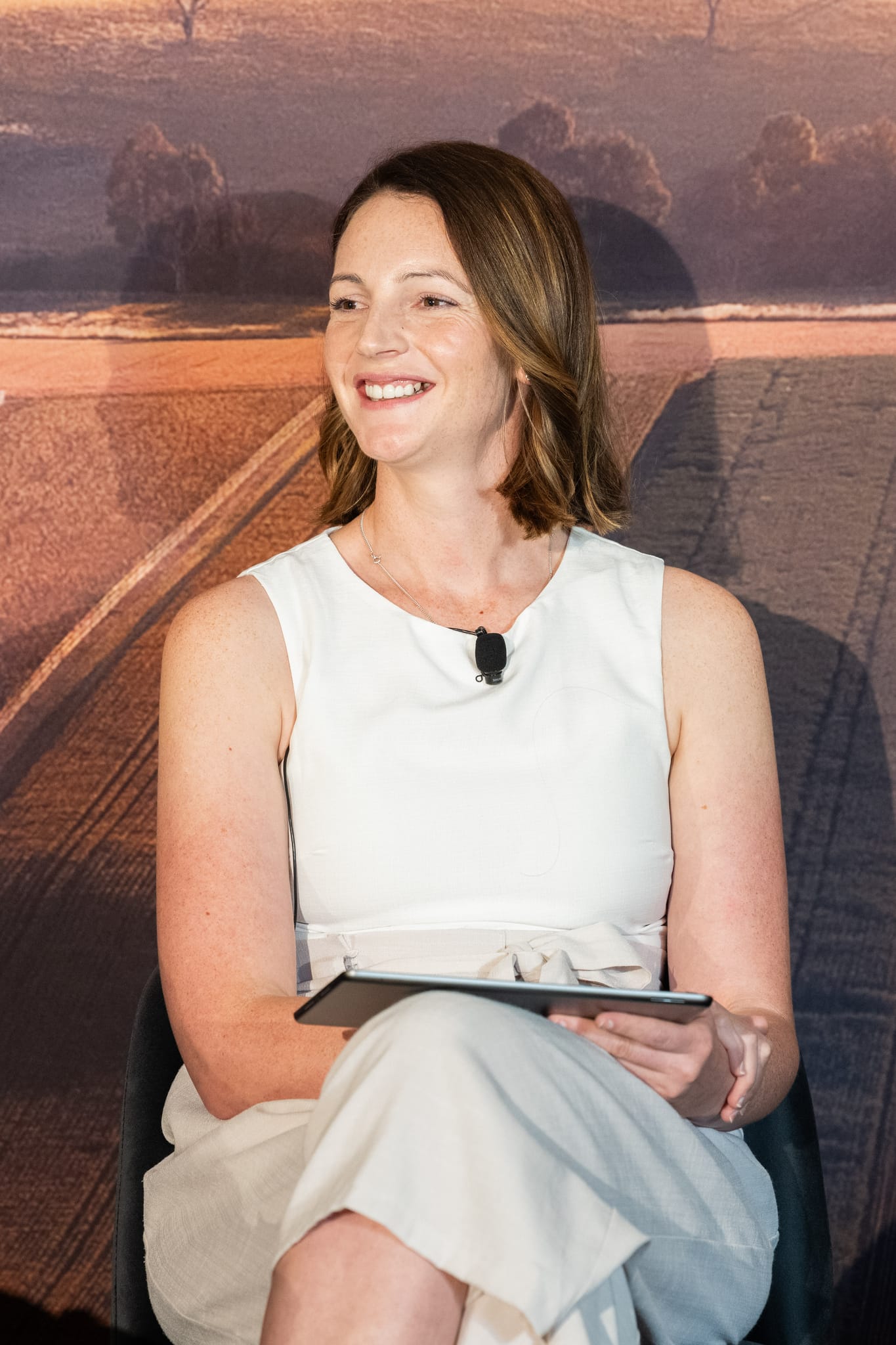
Lauren Mackenzie, Lead Sustainable Sourcing Manager Forests, Land and Agriculture, Coles Group. Image | Rachael Lenehan Photography.
How can agrifood businesses build trust?
– Gaethan Cutri, Cutri Fruit
I don’t go into stakeholder engagements thinking strategically about trust. But we tend to overcommunicate about our farm business, so we’ve been able to organically build trust with our clients.
I used to try and tell people our story, but found I was telling the wrong people. Then I started writing newsletters, but I didn’t know if anyone read them. So now, we just use a really simple WhatsApp chat. It’s raw; just me videoing myself and explaining what’s happening on the farm and why. But it really resonates with people and, incredibly, it gets passed up the chain to store managers and directors.
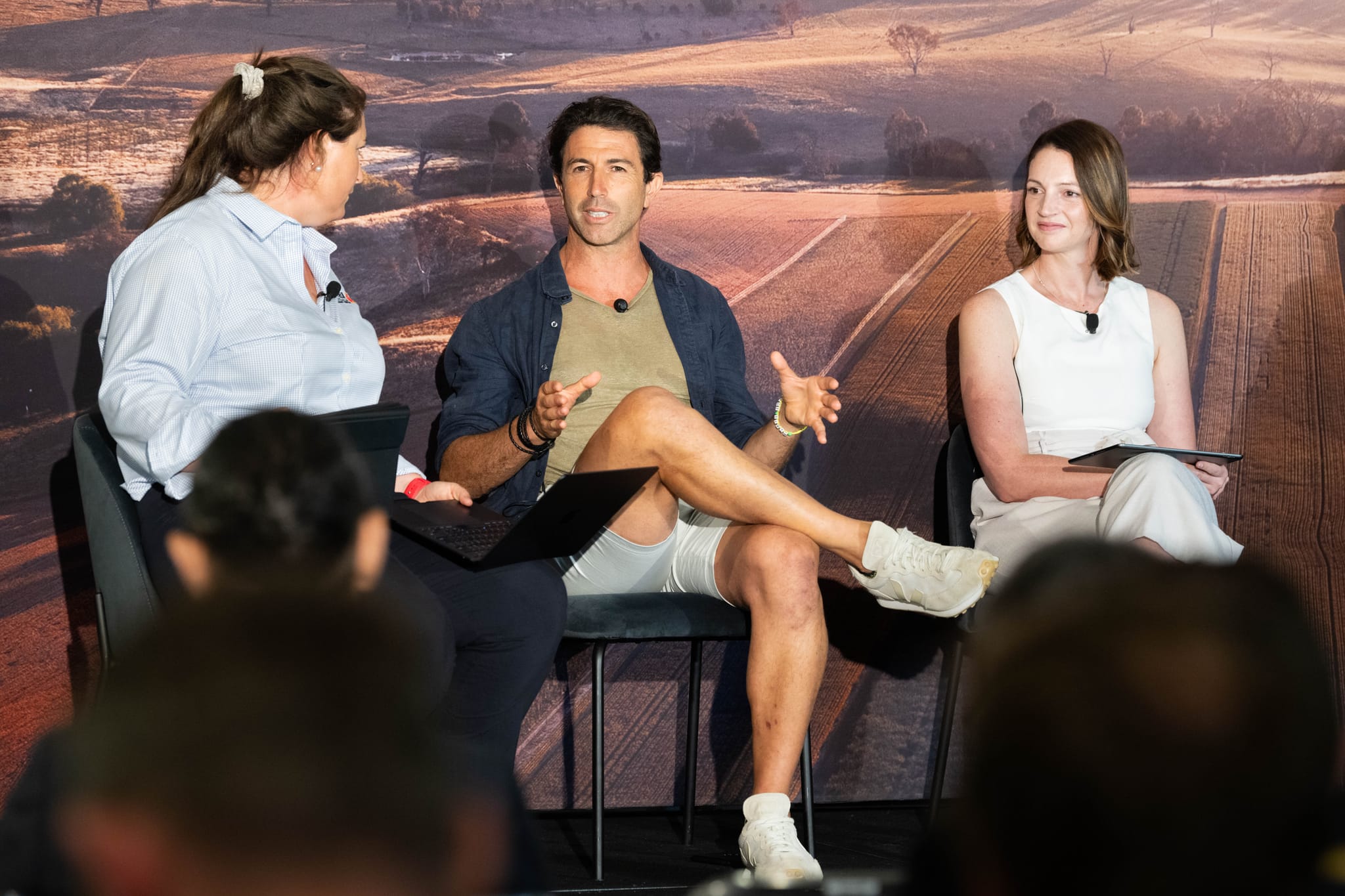
Gaethan Cutri, Owner and Director, Cutri Fruit. Image | Rachael Lenehan Photography.
When trust erodes, how do agribusinesses get it back?
– Gaethan Cutri, Cutri Fruit
As farmers, I feel like the buck stops with us, and that feels unfair. But you can’t just hide under a rock when trust is threatened. You have to work your way through it. And because I am fairly open and transparent, we just communicate everything. So, the day we learn something might go wrong, we contact every stakeholder – not just the retailers, but all customers and supplier too – and come with an open book. Then together, we can solve it.
Does greenwashing make trust redundant?
– Lauren Mackenzie, Coles
There’s never been more scrutiny on green claims, and the penalties for being found to have misled consumers – especially on sustainability – are significant. The Australian Competition and Consumer Commission (ACCC) has flagged greenwashing in Australia; we’ve seen court cases internationally against some really big corporations. So, scrutiny will only increase, and companies are really going to have to pull themselves into line on that front.
All roads lead to the customer, so we build our ESG policies based on what they tell us they’re concerned about.
Then we build solutions from the bottom up with our farmers. Every Coles environmental social governance (ESG) policy and outcome is designed around the expectation that we will have to show our homework at some point.
RELATED: What happens when passion meets practicality in innovative agriculture
What can international supply chains teach us about trust?
– Dr Michael Patching, Alta Food and Agriculture
We tend to talk about supply chains as if they’re the same in our own ecosystem and internationally. But my experience in southeast Asia – and it’s repeated all over the world – is that there are different types of supply chains, and each has different trust elements.
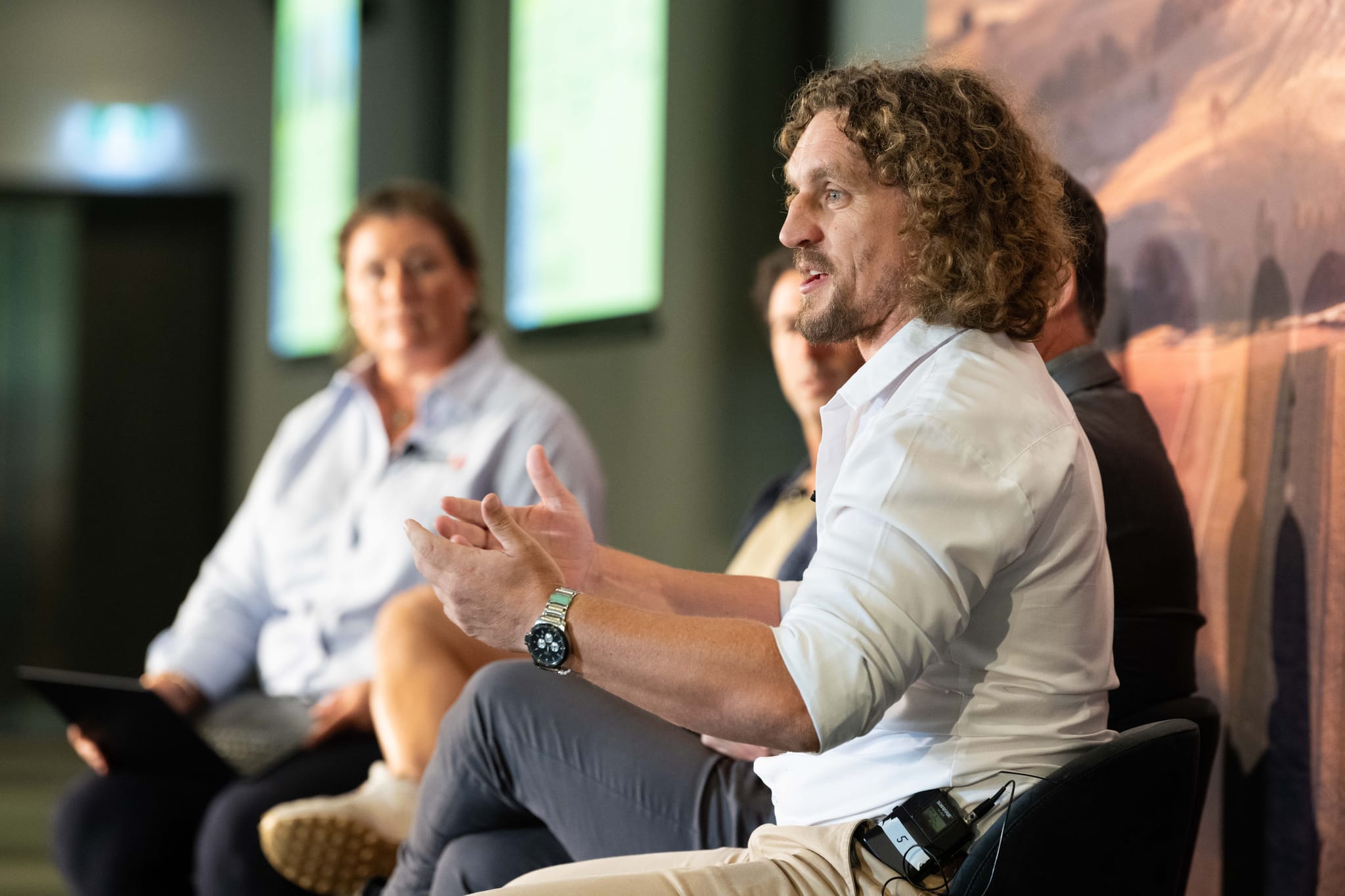
Dr Michael Patching, Managing Director, Alta Food and Agriculture. Image | Rachael Lenehan Photography.
In Australia, we’ve added trust elements as a marketing angle for our products: environment, food safety, eating quality, traceability. But something we need to be aware of is that there’s a lot of pushing out from Australia: ‘We’re the greatest; Here you go, world.’
We’re a very small percentage of most countries’ imports, and as an export-focused sector, we absolutely depend on their support.
If we’re saying we’re leaders in biosecurity or animal welfare or quality, then we need to be – or else we expose ourselves.
The fact that we even have an innovation ecosystem means there are gaps in what we’re doing. So, we just need to be conscious about what we’re pushing.
When it feels like the activists are winning, do Australians still trust our rural industries?
– Dr Kieren Moffat, VoconiQ
VoconiQ’s program of research with AgriFutures Australia, in collaboration other rural Research and Development Corporations, showed that Australians hold rural industries in high regard. And in the last three years, we’ve seen that number climb to an incredible 90%.
RELATED: No holds barred: Leading Aussie agritech founders’ frank assessment of industry challenges
But other research by the National Farmers’ Federation and Norco [dairy co-operative] showed farmers think Australians don’t value what they do – and it’s potentially contributing to mental health issues. That’s really troubling, because it is so obviously not the case.
It’s not that there aren’t any trust issues; Australians do have some concerns about the way some parts of industries work. But that’s the stuff to have the conversation about. The starting point should be the consensus opinion that these are fundamental industries for our country.
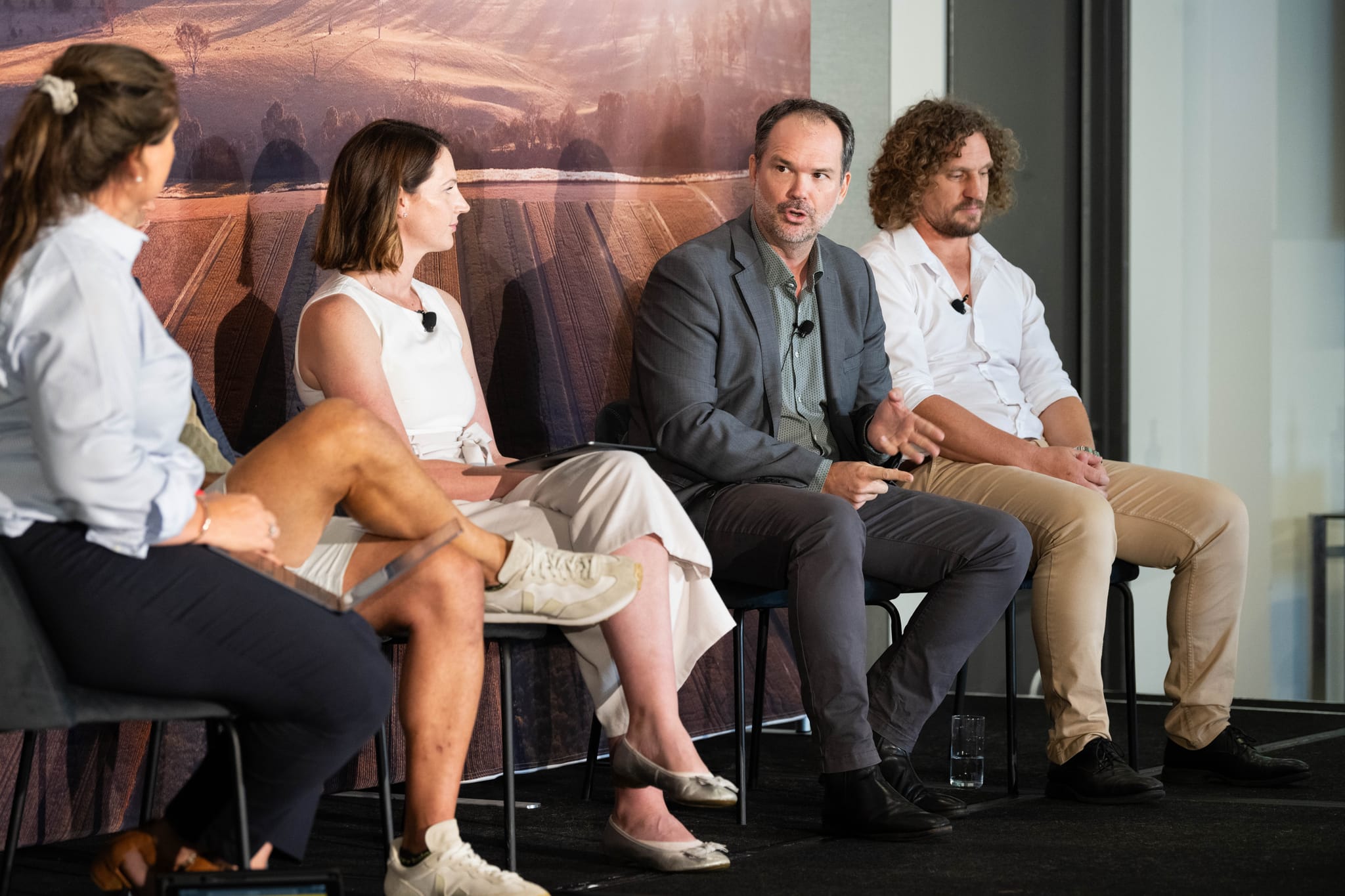
Dr Kieren Moffat, CEO and co-founder, VoconiQ Engagement Science Insights. Image | Rachael Lenehan Photography.
What happens when industry standards and consumer expectations don’t quite match up?
– Dr Michael Patching, Alta Food and Agriculture
Industry or government create minimum standards that allow access to either an international or domestic market, based on where they perceive public expectations to be sitting. But public perception changes over time. When things are put in front of them, their own value system kicks in and they react, and that’s when we get responses from markets or regulators – and we have to regain trust.
But industries are only really incentivised to meet those minimum standards.
Pushing beyond is something producers do because they value it, not because they get more money for it.
So, we have this difficult situation where producers are criticised, but not incentivised to change – and it is very difficult to go beyond that.
– Dr Kieren Moffat, VoconiQ
The challenge for rural industries is to get past the loudest voices and to who your real audience is with respect to social license, and that is the community – not the champions of Twitter [X].”
Gaethan Cutri, Owner and Director, Cutri Fruit; Dr Michael Patching, Managing Director, Alta Food and Agriculture; Dr Kieren Moffat, CEO and Co-Founder, Voconiq; and Lauren Mackenzie, Lead Sustainable Sourcing Manager Forests, Land and Agriculture, Coles Group; were part of panel discussion, ‘In innovation we trust’ at AgriFutures evokeAG. 2024. The discussion was facilitated by Catherine Marriott OAM, 2024 Nuffield Scholar.
For more inspiration about how agrifood tech can help make our food supply chains more sustainable and profitable sign up for updates from evokeAG.
